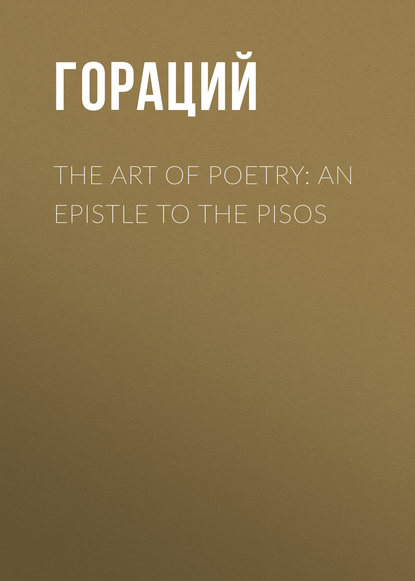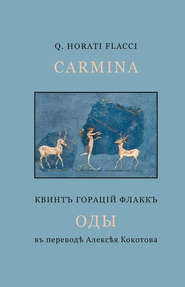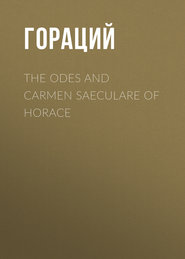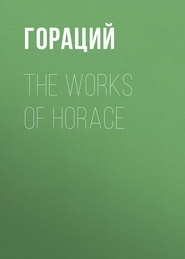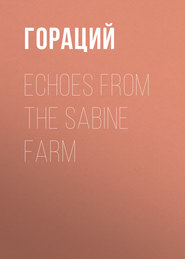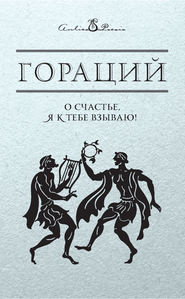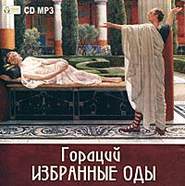По всем вопросам обращайтесь на: info@litportal.ru
(©) 2003-2024.
✖
The Art of Poetry: an Epistle to the Pisos
Настройки чтения
Размер шрифта
Высота строк
Поля
Multa ferunt anni venientes commoda secum,
Multa recedentes adimunt: ne forte seniles
Mandentur juveni partes, pueroque viriles.
Semper in adjunctis aevoque morabimur aptis.
Aut agitur res In scenis, aut acta refertur:
Segnius irritant animos demissa per aurem,
Quam quae sunt oculis subjecta fidelibus, et quae
Ipse sibi tradit spectator: non tamen intus
Digna geri promes in scenam: multaque tolles
Ex oculis, quae mox narret facundia praesens:
Ill-humour'd, querulous; yet loud in praise
Of all the mighty deeds of former days;
When he was young, good heavens, what glorious times!
Unlike the present age, that teems with crimes!
Thus years advancing many comforts bring,
And, flying, bear off many on their wing:
Confound not youth with age, nor age with youth,
But mark their several characters with truth!
Events are on the stage in act display'd,
Or by narration, if unseen, convey'd.
Cold is the tale distilling thro' the ear,
Filling the soul with less dismay and fear,
Than where spectators view, like standers-by,
The deed submitted to the faithful eye.
Yet force not on the stage, to wound the sight,
Asks that should pass within, and shun the light!
Many there are the eye should ne'er behold,
But touching Eloquence in time unfold:
Ne pueros coram populo Medea trucidet;
Aut humana palam coquat exta nefarius Atreus;
Aut in avem Procne vertatur, Cadmus in anguem.
Quodcunque ostendis mihi sic, incredulus odi.
* * * * *
Neve minor, neu sit quinto productior actu
Fabula, quae posci vult, et spectata reponi
Nec Deus intersit, nisi dignus vindice nodus
Inciderit: nec quarta loqui persona laboret.
* * * * *
Actoris partes Chorus, officiumque virile
Defendat: neu quid medios intercinat actus,
Quod non proposito conducat et haereat apte.
Ille bonis faveatque, et concilietur amicis,
Et regat iratos, et amet peccare timentes:
Who on Medea's parricide can look?
View horrid Atreus human garbage cook?
If a bird's feathers I see Progne take,
If I see Cadmus slide into a snake,
My faith revolts; and I condemn outright
The fool that shews me such a silly sight.
Let not your play have fewer acts than five,
Nor more, if you would wish it run and thrive!
Draw down no God, unworthily betray'd,
Unless some great occasion ask his aid!
Let no fourth person, labouring for a speech,
Make in the dialogue a needless breach!
An actor's part the Chorus should sustain,
Gentle in all its office, and humane;
Chaunting no Odes between the acts, that seem
Unapt, or foreign to the general theme.
Let it to Virtue prove a guide and friend,
Curb tyrants, and the humble good defend!
Ille dapes laudet mensae brevis, ille salubrem
Justitiam, legesque, et apertis otia portis:
Ille tegat commisia, Deosque precetur et oret,
Ut redeat miseris, abeat fortuna superbis.
Tibia non, ut nunc, orichalco vincta, tubaeque
aemula; sed tenuis, simplexque foramine pauco,
Aspirare et adesse choris erat utilis, atque
Nondum spissa nimis complere sedilia flatu:
Quo fanè populus numerabilis, utpote parvus
Et frugi castusque verecundusque coibat.
Postquam coepit agros extendere victor, et urbem
Laxior amplecti murus, vinoque diurno
Placari Genius sestis impune diebus,
Loud let it praise the joys that Temperance waits;
Of Justice sing, the real health of States;
The Laws; and Peace, secure with open gates!
Faithful and secret, let it heav'n invoke
To turn from the unhappy fortune's stroke,
And all its vengeance on the proud provoke!
The Pipe of old, as yet with brass unbound,
Nor rivalling, as now, the Trumpet's sound,
But slender, simple, and its stops but few,
Breath'd to the Chorus; and was useful too:
For feats extended, and extending still,
Другие электронные книги автора Квинт Гораций Флакк
Другие аудиокниги автора Квинт Гораций Флакк
Избранные оды




 4.67
4.67





